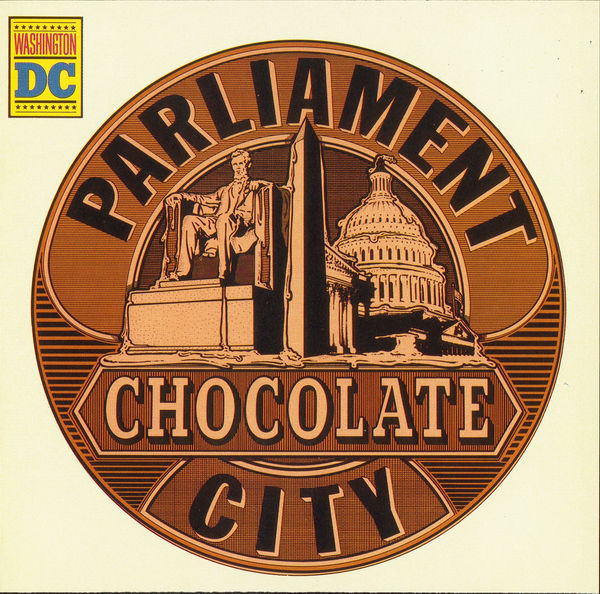
Released in 1975, the political-funk delirium “Chocolate City” by George Clinton’s Parliament imagined the American capital under black sovereignty and a White House entrusted to figures of Black Power. Here is the third episode of our series dedicated to the Black History Month.
Photo by Bruce W. Talamon © 2018 All Rights Reserved
Slumped in the Oval Office, and imagine instead Muhammad Ali in the White House, Stevie Wonder as Minister of Fine Arts and Aretha Franklin reigning as the First Lady in the American capital now renamed “Chocolate City”.
This cosmic version of ‘I Have a Dream’ germinated just forty-five years ago in the brain of George Clinton, the Pope of P-Funk, who gave birth to this hymn that dreams of black power. It seemed prophetic upon Obama’s arrival in 2008 and now sounds like a rallying cry for the resistance.
“Chocolate City” then. The track and its eponymous album are a political manifesto that journeys into the black heart of Washington, DC, and its ‘vanilla suburbs’ – clean streets populated by well-dressed white WASPs. On the now iconic cover, we see the emblems of the federal capital – the Lincoln Memorial, the Obelisk, and Congress – are coated with thick, dripping chocolate, seeping into the city’s back alleys as well as the corridors of power.
When Parliament’s LP appeared in March 1975, the idea of a black capital was something of a pipe dream. Watergate had got the better of Richard Nixon and his beliefs in a racial hierarchy, but his successor in the White House was hardly a supporter of the Black Power Movement.
Put simply, from the Secretary of the Treasury to the diplomatic chiefs the Ford administration consisted almost exclusively of white men, who no longer had to worry about strong black leaders such as Malcolm X or Martin Luther King because they had all been murdered during the previous decade.
But things were changing. The Vietnam War was coming to an end and hedonism was all the rage. Under its glitter and bass, the fight for black empowerment was being swept along in the wave of disco.
With his cardboard spaceship, thigh high wedge boots, and rainbow deadlocks, George Clinton didn’t exactly conjure up the image of a deep and serious artiste. The name of his group, founded in the suburbs of New York in 1955, The Parliaments, which later became Parliament, is misleading – it isn’t an ode to legislative power but rather a reference to a brand of trendy cigarettes.
And yet, behind the pure and simple celebrations of pleasure (“Make My Funky P-Funk”) or Afro-futurist parties (“Mothership Connection”), Clinton and his crew – sometimes under the name Parliament, sometimes under the name Funkadelic – deliver the occasional sucker punch to a nation that devours its youth of colour (“America Eats Its Young”).
“Chocolate City” is in this vein. Nothing quite as upfront as “The Revolution Will Not Be Televised” by Gil Scott-Heron (1971) but a subtle groove to get the message across to white people looting power in a black city – look out, it’s not going to last.
This warning isn’t issued with a banging drum, but with a smooth guitar, quickly joined by the synthetic harp strings of genius keys player, the late Bernie Worell. ‘We just took [the riff] and went in the studio…Bernie played all this classical kinda stuff on top of that and the next thing you know it’s like wow! The song was born’, said Bootsy Collins, the legendary bassist of P-Funk, in 2010.

All that remained was to add the finishing touches – Sir George Clinton’s declaration of love for ‘CC’ AKA Chocolate City in his spoken word style using explicitly political lyrics. His message: Washington belongs to black people.
Founded in 1791 on a swamp infested by mosquitos, the city was the first to free its slaves in 1862. For 150 years Washington had been home to Howard University, an establishment dedicated to the education of black elites, and segregation had been less violent there than elsewhere.
Inventor of the go-go Chuck Brown, Duke Ellington, and Marvin Gaye were among the many black citizens who had been attracted to the capital. In fact the black population far outnumbered the white one.
‘The last percentage count was 80
You don’t need the bullet when you got the ballot
Are you up for the down stroke, CC?’
asks George Clinton during “Chocolate City” playing with the close sounds of the words ‘bullet’ and ‘ballot’.
According to him, black sovereignty over the city was the only fair compensation for slavery, its horrors, and the hollow promises made after its abolition.
‘Hey, uh, we didn’t get our 40 acres and a mule
But we did get you, CC’
intones Sir George, referring to the compensation promised to slaves after the Civil War. He prophesies a change of colour at the heart of American power – ‘they still call it the White House, but that’s a temporary condition’ – and the beginning of a black wave sweeping the land:
‘We got Newark, we got Gary
Somebody told me we got LA
And we workin’ on Atlanta’
However, Clinton had not foreseen the danger coming to his ‘CC’. In the 1980s, crack would decimate the black population of Washington and lead to the loss of the city’s African-American hero, former mayor Marion Barry, filmed smoking the cocaine derivative by the FBI during a sting operation in 1990.
In addition, the funkateer-in-chief had not foreseen another, far more insidious, threat – the very white and very swift gentrification of downtown Washington, once the haunt of pimps, junkies, and soul food, now invaded by gyms and salad bars selling $20 lettuce.
‘Gainin’ on ya!’ proclaims the “Chocolate City” refrain, hot on the heels of white power.
Open your eyes. The White House has never had a more appropriate name and Trump, still seated in the Oval Office, may well be there for another four years.




